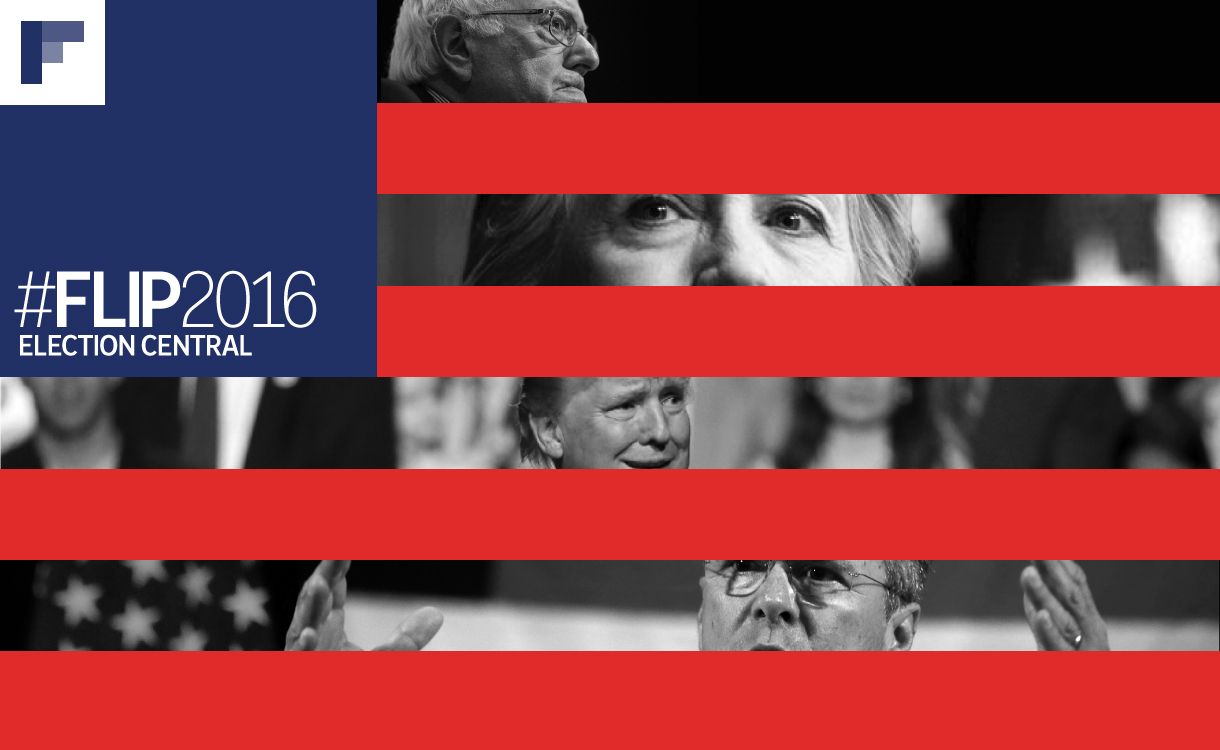2016 Race ‘Depressing’ and ‘Unmistakably Important,’ Says Washington Post Reporter
Gabriella Schwarz / November 25, 2015

We are only a few months away from the first votes of the 2016 presidential election in Iowa, but the race is still taking shape, especially on the Republican side of the aisle. Donald Trump and Ben Carson continue to make headlines for their comments, while Ted Cruz, Marco Rubio and now Chris Christie are rising in the polls. Hillary Clinton still leads among Democrats, though there is no sign of Bernie Sanders taking his foot off the pedal. To get an on-the-ground look at the candidates, we spoke to Washington Post reporter Janell Ross for our monthly State of the Race blog series, as part of our 2016 Election Central activities.
How do the attacks in Paris impact the landscape of the race?
Without question, national security and terrorism have moved to the top of the list. Precisely what each of the candidates propose to do about ISIS, domestic security, the country’s obligations to its allies, Syrian refugees and, now, the screening process for all refugees have become issues that each person in the race must be prepared to discuss. And it has become extremely important for candidates to demonstrate fluency, not just vague awareness.
Who will be most helped by the foreign policy shift we’re seeing, on both sides of the aisle?
In recent polls, Americans appear to have been deeply shaken by the terrorist attacks in Paris. It would seem that candidates on either side of the aisle who are hawkish or present plans that sound feasible and effective will be helped by the shift in national attention to foreign policy. Historically, Republicans have done well in elections where national security issues and conflicts loom large in the list of voter concerns. There are probably a number of reasons for that, including, as I learned in a story this week, some neurological ones. But another is the party’s reputation and history of advocating for armed responses to national problems. This gives Republican candidates a kind of added gravitas or perhaps believability quotient when talking about war or the distinct possibility of an armed intervention in an existing conflict.
However, at least one Democrat in the presidential race has a reputation for being relatively hawkish, has more experience with foreign policy than others in the race and made a speech this week distinguishing her position from President Obama’s. So, like many things in the election, it is probably too early to tell who will ultimately be “helped.”
Is the rhetoric about migration and Islam a reflection of the mood in the country or vice versa?
That’s a very interesting question. It’s certainly true that the culture and national temperament influence politics in all sorts of ways, including the voting public’s sense of who is the right candidate for the job and which policies are needed or right for the time. But our politics, particularly in the United States, are also part of our culture. Democratic values are part of this country, even if they have not always been real for everyone who lives here. That makes me think that the current rhetoric we are hearing really is a reflection of pretty deep levels of anxiety, anger and maybe even despair. Some of the things people have said publicly on these issues and some of the policy responses that have been floated seem to be driven mostly by emotion. In some cases we have heard candidates reach for proposed solutions that have been tried before and discontinued. We have seen candidates recently suggest programs and policies that may be unconstitutional, violate the human rights of entire groups or played a central role in shameful events in human history.
A few of the comments Hillary Clinton made during the most recent Democratic debate have caused a stir. Do you see a difference in how her so-called gaffes are treated compared to other candidates’ (Democratic and Republican) gaffes?
I really don’t, not in any marked or sustained way. She gave an answer during the most recent debate about her campaign’s financial ties to Wall Street that seemed to attempt to use 9/11 as a kind of shield against questions or criticism. It did not go over well. But it probably would not have gone over well if anyone else said anything like that either.
On the Republican side of the race, I do think that Carly Fiorina has faced some challenges that seem, almost certainly, to reflect both latent and overt sexism. And most of that seems to have come her way from another Republican candidate.
That said, I sometimes do wonder if Clinton’s view of the way she is covered is limited to just the 2016 race. Or, is it shaped by all that has been written or said about her in the 23 years she’s been on the national political stage? Given the way human beings work, it’s very likely the later. In much the same way that a lifetime of experiences with other types of discrimination can make even hints of bigotry really repugnant, Clinton might simply be tired of carrying this extra burden. It creates considerations for her that few other candidates have to deal with.
As we close in on the Iowa caucuses, who has the most momentum on the ground?
Another excellent question. And, that is another one that is not easy to answer. If I say candidate X today, it may be candidate Y tomorrow. Generally I would say that Ben Carson and Hillary Clinton seem to be well poised for the Iowa caucuses. Voters who like these two candidates and what they advocate for are present in heavy concentrations in Iowa. They also rank among experienced and motivated caucus goers. On the other hand, Bernie Sanders, Donald Trump, Ted Cruz and, more recently Marco Rubio would seem to have a good bit of momentum in Iowa, too.
What five adjectives would you use to describe the current state of the race?
The first is a semi-neutral words—”intriguing.” That’s such a great word. After that, I would probably have to say “challenging” [to cover], “revelatory,” at times “depressing” and “unmistakably important.”
Check out The Washington Post Flipboard Magazines on each presidential candidate here, and keep up with the changing race through our politics destination, Election Central.
~GabyS & CarolynG are reading Women in Politics
GET FLIPBOARD ON:
iOS / ANDROID / WINDOWS / WEB
FOLLOW US ON:
FLIPBOARD / TWITTER / INSTAGRAM / FACEBOOK / GOOGLE+ / TUMBLR / YOUTUBE / SOUNDCLOUD / PINTEREST / MEDIUM




